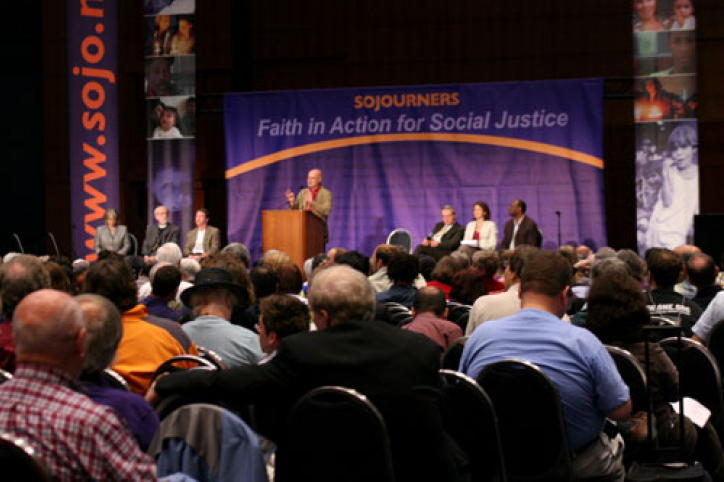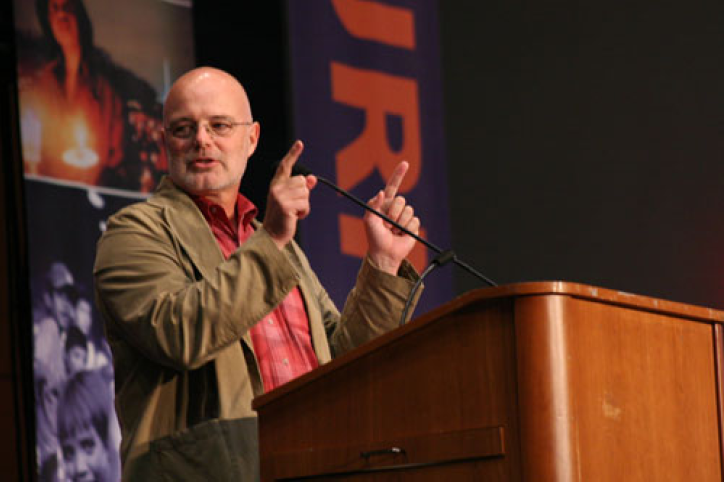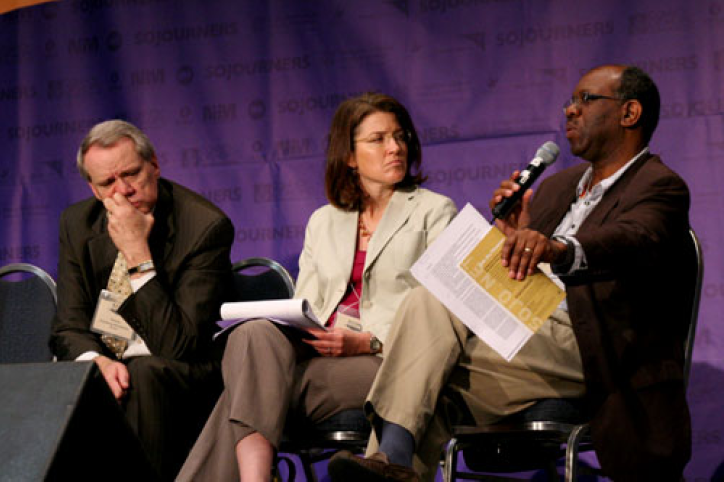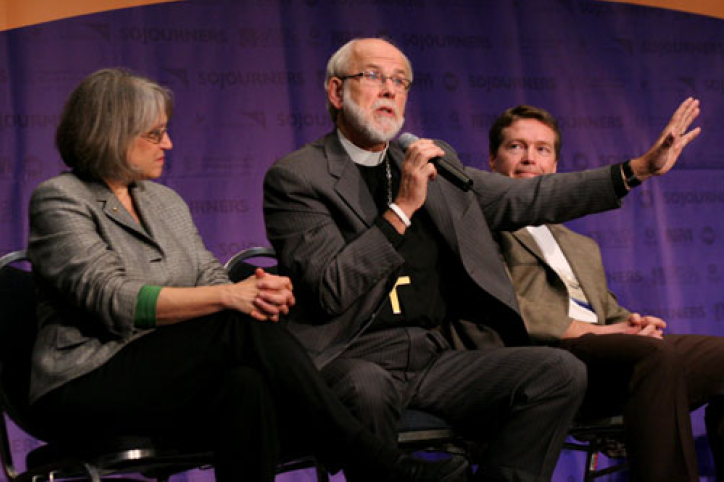WASHINGTON – A panel of diverse Christian leaders sent a strong message to churches Wednesday when they stated that poverty is not a political issue but a biblical one.
“I think we fail to see this (fight against poverty) is the work of all the baptized, all believers in Jesus,” said Bishop Mark Hanson, presiding bishop of the Evangelical Lutheran Church in America, during a panel discussion at the Mobilization to End Poverty conference. “So we need to go back to the countless calling of all the community of faiths grounded in what we are marked by the cross of Christ [to do].”
Panelists, however, readily acknowledged that many churches have been reluctant to fully embrace tackling poverty as a high priority mission. Many churches and pastors view fighting against poverty as a political issue or an extracurricular activity, the leaders explained.
“Combating poverty is seen as optional, it is seen as an activity, it is seen as a program, it is seen as something to make statements about,” explained the Rev. Wesley Granberg-Michaelson, general-secretary of the Reformed Church in America (RCA). “And it should be seen as something that is the mark and identity of the church itself.”
The key problem of getting churches involved in fighting against poverty, Granberg-Michaelson contended, is how Christians understand the meaning of the church itself.
The Rev. Dr. Sharon E. Watkins, general minister and president of the Christian Church (Disciples of Christ), asked, “What are we working for?”
“For me, we are working to be able to embody the wholeness of the human family that God created from the beginning of time,” Watkins said. “We are looking to exemplify already the peaceful kingdom, looking already to be like how God created us to be."
Seven Christian leaders participated in the session entitled “Church Leader Roundtable – Uniting and Mobilizing the Church in the Fight Against Poverty" on Wednesday. The engaging conversation, moderated by emergent church leader Brian McLaren, addressed issues such as why should the church care about poverty, what should a person do if their pastor and church is not ready to be active in the fight, and what have churches already done to address the problem.
The Christian leaders on the panel proudly shared ways their church and organizations have helped fight poverty in America.
ELCA Bishop Hanson said a member church located in a suburb had relocated the entire church to the inner city between two homeless shelters to better serve those in need. Watkins, meanwhile, shared that female members of the Christian Church (Disciples of Christ) denomination took a bus tour around the country to see and hear real life stories from the poor and bring what they learned back to their churches to help the congregations decide how to best approach the problem.
Other groups took more political approaches to ending poverty. Alexia Kelley, co-founder of Catholics in Alliance for the Common Good, bought radio ads, sent letters to senators and met with congressmen to push provisions for the poor in the stimulus bill and the national budget.
Whatever the method to tackling poverty, the Christian leaders agree that the problem is too big and churches most join hands to fight against poverty together.











